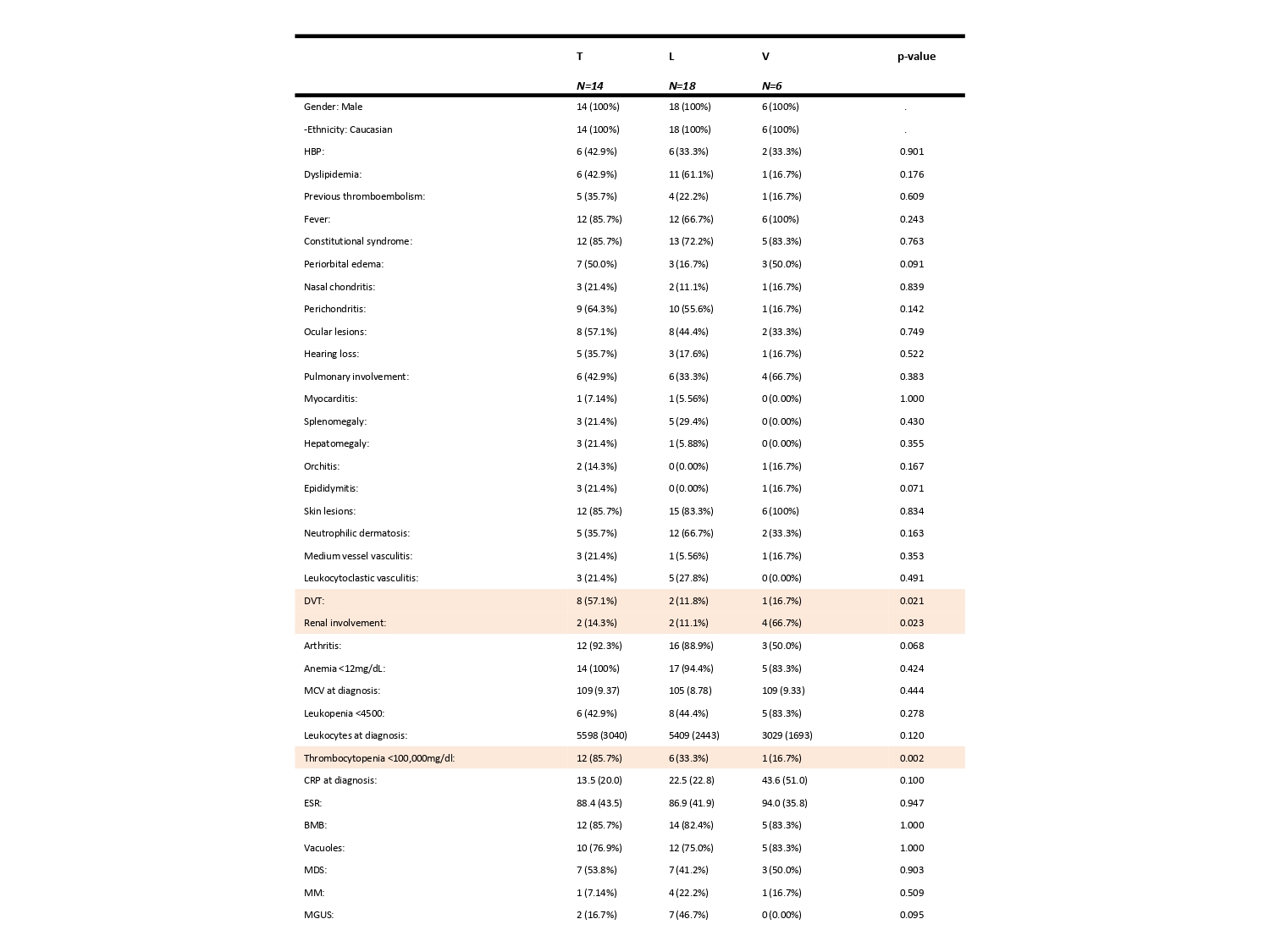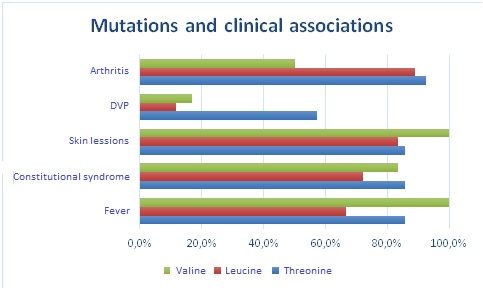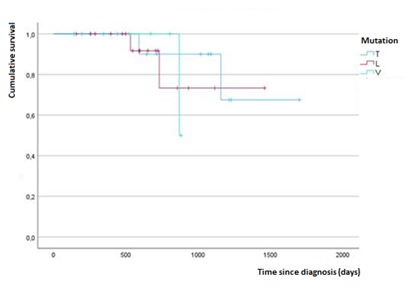Session Information
Session Type: Poster Session C
Session Time: 10:30AM-12:30PM
Background/Purpose: VEXAS syndrome is an autoinflammatory disorder caused by a mutation in the UBA1 gene, which leads to a heterogeneous clinical presentation and progressive bone marrow failure. Differences in symptoms and severity have been described in relation to the type of genetic mutation objectified. This study aims to categorize these clinical subsets in our cohort.
Methods: A retrospective, multicenter study was performed across all 126 hospitals with rheumatology units in Spain. Patients diagnosed with VEXAS syndrome, characterized by a clinical presentation compatible with a UBA1 gene mutation and/or presence of vacuoles in bone marrow were included. Data on demographics, clinical features, laboratory results, genetic mutations, and outcomes were collected. Statistical analyses were conducted using standardized tests.
Results: A total of 42 patients were included, with an average age at diagnosis of 71.55 years (SD ±14.28) and an average age at symptom onset of 66.12 years (SD ±14.27). The median time from symptom onset to diagnosis was 5 years (IQR 1.75-8.25), and the median time from symptom onset to rheumatology referral was 1 year.
Of these patients, 18 presented a leucine mutation, 6 a valine mutation and 14 a threonine one. Baseline clinical characteristics by mutation type are detailed in Table 1. Type 1 – leucine mutation was associated with constitutional syndrome, skin involvement, arthritis, and anemia, though these associations were numerically rather than statistically significant. Type 2 – valine mutation was linked to fever, constitutional syndrome, lung involvement as well as anemia and skin manifestations. This group had a notably higher prevalence of renal involvement, which was statistically significant. Type 3 – threonine mutation was correlated with fever, constitutional syndrome, skin involvement, arthritis, and anemia. Deep vein thrombosis and thrombocytopenia showed statistically significant associations with the threonine mutation (Figure 1). Five patients died from VEXAS syndrome: two of them showed a leucine mutation, two a valine mutation and one a threonine mutation (Figure 2).
Conclusion: Although preliminary, these findings suggest that deep vein thrombosis and thrombocytopenia are significantly associated with the threonine mutation, whereas renal involvement is significantly linked to the valine mutation in our cohort.
To cite this abstract in AMA style:
García Escudero P, López I Gómez M, Magallanes López B, Dios Santos D, Toyos Sáenz de Miera F, García Dorta A, Hernández Beriain J, Rúa-Figueroa Í, sieiro santos c, Díez Álvarez E, Ibáñez Martínez M, Frade-Sosa B, Font Urgelles J, Sallés Lizarzaburu M, Riera Alonso E, Trallero Araguás E, Enríquez Merayo E, Rodriguez-Laguna M, monjo i, Merino C, Vela-Casasempere P, Vázquez Gómez I, Miranda Filloy J, Melero-Gonzalez R, Garcia Belando C, Boselli G, Boteanu A, Fiallo Suárez D, Corrales Selaya C, RUIZ ROMAN A, Calvo-Alén J. Phenotypical Differences in VEXAS Syndrome, Where Are We a Year Later? Results from a National Cohort Focused on Rheumatological Patients [abstract]. Arthritis Rheumatol. 2024; 76 (suppl 9). https://acrabstracts.org/abstract/phenotypical-differences-in-vexas-syndrome-where-are-we-a-year-later-results-from-a-national-cohort-focused-on-rheumatological-patients/. Accessed .« Back to ACR Convergence 2024
ACR Meeting Abstracts - https://acrabstracts.org/abstract/phenotypical-differences-in-vexas-syndrome-where-are-we-a-year-later-results-from-a-national-cohort-focused-on-rheumatological-patients/



